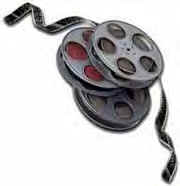Home | Critical History | Bibliography | Links | References
![]()
Home | Critical History | Bibliography | Links | References
![]()
 |
When students are asked to watch a film adaptation of a novel they are reading for a class, they often tend to compare the two experiences to determine, “which is better, the movie or the book?” A valid analysis, however, does not ask that question. Novels and films are different vehicles through which to experience a story, so comparing these two genres is often like determining, “which is better, lasagna or cheese cake?” Just as evaluating both eating experiences is determined by taste, need, and quality, so is evaluating two interpretations of a story. And, because the film adaptation is often based on a novel whose quality and universality has stood some test of time, it has somewhat large shoes to fill. But just because a classic novel has been adapted once or multiple times into a film does not determine the value of either the novel or the film. |
 |
It may be that a particular film adaptation is a high quality work of art that connects with its audience and that it captures many of the themes and ideas of the original novel. It may be that the film is a quality work of art that captures only a few ideas from the original novel, or it may be that the film is completely faithful to the original novel, but is not a high quality work of art. The quality of film adaptations varies as much as the quality of original films, so comparing the film to the novel to determine “which is better” does not give the student a valid topic for writing a good essay. There are a few factors to consider when writing essays about film adaptations: |
 |
|
 |
Only after considering these questions should the student begin to formulate a thesis. Therefore, evaluating a film adaptation of a novel is much more than considering “which is better,” since a comparison must consider the unique attributes of both literary genres. |
![]()
Home | Critical History | Bibliography | Links | References
Lynda A. Hall
Department of
English and Comparative Literature
Chapman
University,
Orange, CA
lhall@chapman.edu
![]()